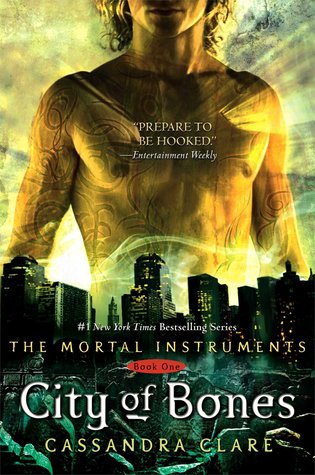
my children’s lit textbook
Reviewing is all about deciding how you feel about a book. Paying attention to the characters, plot, theme, and writing style can help you define and explain those feelings and that is the key to reviewing. It doesn’t matter if you like or dislike a book as long as you can explain why you feel that way.
It’s also important to keep in mind the audience for whom a book is written and what purpose the author hopes to serve. If you pick up a popular young adult fiction novel expecting shakespeare you are likely to be disappointed which may affect your review unfairly. But if you can recognize that the book is just meant to be entertaining and exciting, not a poetic oration on the meaning of life you just might be able to appreciate it or at least aspects of it. Similarly, a children’s book is, by nature, going to have more simplified words and content so that the audience for whom it was written will be able to understand and relate to it. But that doesn’t mean it has to be boring or badly written. So if you find yourself cringing at an underdeveloped plot or character don’t let that slide because it’s a book for kids.
 The City of Bones by Cassandra Clare is the perfect example of a young adult novel that is just meant to be entertaining. I didn’t see any indication that there was some underlying commentary or message; it was just meant to be fun. Unfortunately, I also didn’t see much of the fun. The writing was choppy and the dialogue confusing. The characters acted too old for their age and their motives were unclear and inconsistent. I can appreciate the interesting plot and world, but the entertainment factor can’t excuse the poor writing style and story elements. Overall, I did not like the book and would not consider it “good.” It might meet the standard for “Ok.”
The City of Bones by Cassandra Clare is the perfect example of a young adult novel that is just meant to be entertaining. I didn’t see any indication that there was some underlying commentary or message; it was just meant to be fun. Unfortunately, I also didn’t see much of the fun. The writing was choppy and the dialogue confusing. The characters acted too old for their age and their motives were unclear and inconsistent. I can appreciate the interesting plot and world, but the entertainment factor can’t excuse the poor writing style and story elements. Overall, I did not like the book and would not consider it “good.” It might meet the standard for “Ok.”

The Giver
When the elements of a good story and good storytelling combine in just the right way you get “good” and even “great” books, but evaluating each element separately helps to identify the books that fall in other ranges of the grading scale. It also helps to validate your opinion about a book, to provide evidence to support your review. Though taking each element on its own is helpful, it’s the result when they are combined that creates a book’s impact (or lack thereof).
That concludes my “lecture” on reviewing. So go ahead – Read! Then make the judgment, decide if the book was good or not. Evaluate the different aspects of the book to justify your judgment. Then don’t forget to talk about it or write about it so you can learn and remember. Share it with others too so you can learn from them. Share it with me so I can learn! And most important of all, give me book recommendations because I’ve got some reading and reviewing to do!